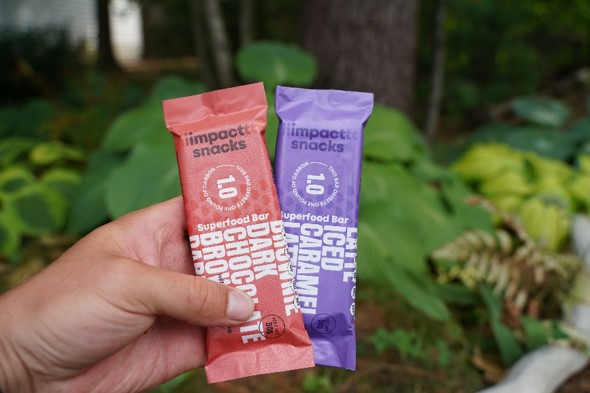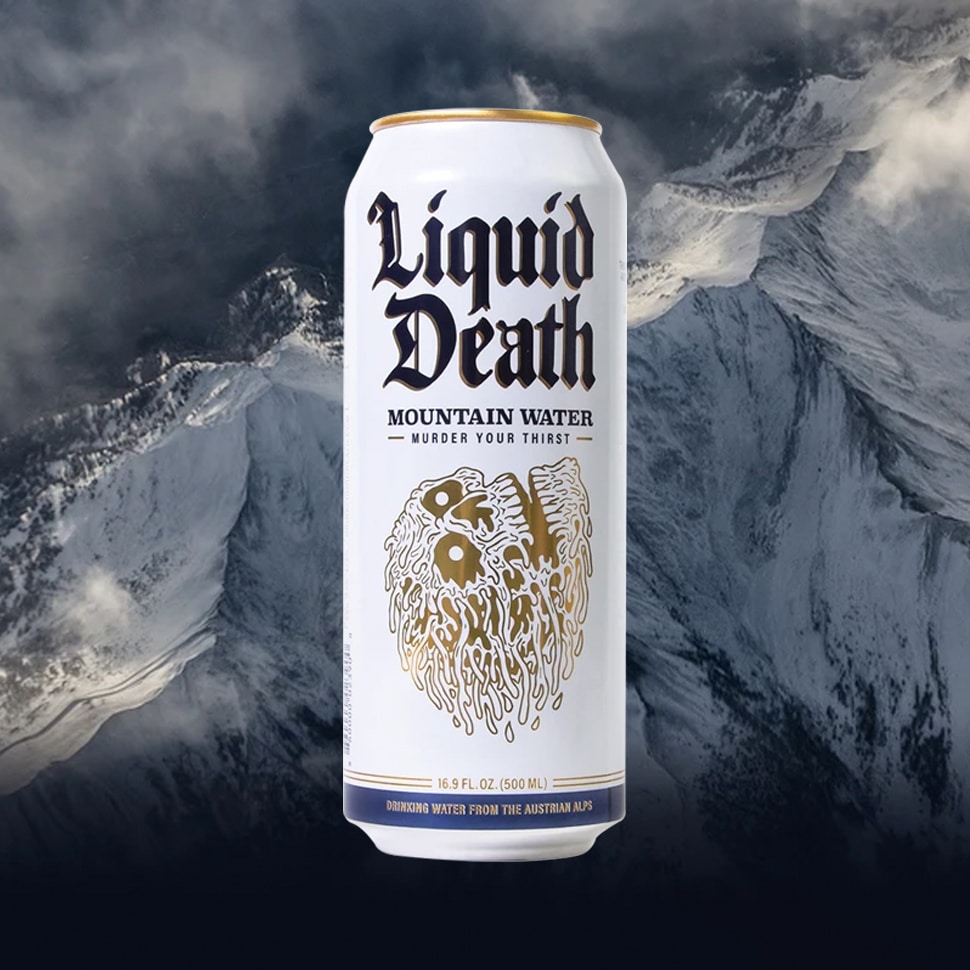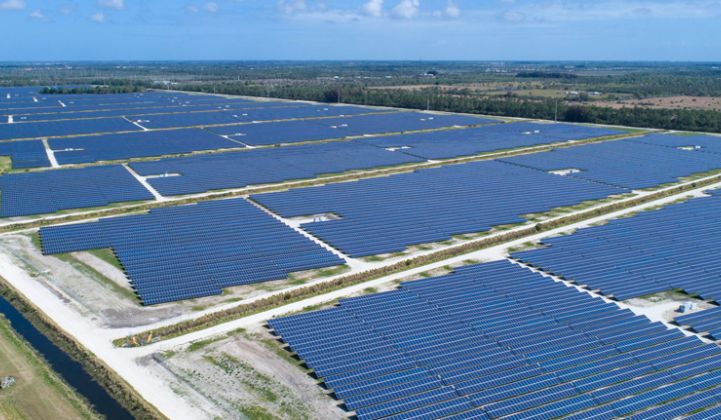To: The Impact Readers
Thursday Edition 💻
Missed us this Monday?
Well day jobs got the best of us this week and you know we won’t rush a week just to have a newsletter in your inbox. It’s always gonna be quality first!
We got some really cool interviews and consumer products this week you should check out and even a quick update from the “energy stock market”
In Your Inbox: Impact Snacks; Liquid Death is an interesting consumer brand; Nextera is worth more than ExxonMobil after great earnings reports.

This week, I talked with Corey Nobile, the Founder of Impact Snacks, to discuss their approach to sustainable food and practices. Impact Snacks was founded in 2016 and recently launched after a highly successful Kickstarter campaign that was completely funded in just 13 hours after going live.
Their primary focus is to change the way people look at everyday snacking by creating a 100% plant-based superfood bar that reclaims more carbon than it makes and produces no plastic.
This solution is needed for the future, as single-use plastics pollute our landfills and oceans, and they can take up to 1000 years to decompose. For perspective, 1.3B tons of plastic waste are estimated to be thrown away over the next 2 decades (without intervention).
How did Impact Snacks start?
The first phase of Impact Snacks began by making protein and entering high school business competitions. And then it started evolving from a hobby that was supported by friends and family into a real business. And when we went to college, it started taking form in a way that we didn’t think it would.
At the same time, we were learning about new environmental sustainability, and before that we didn’t really know much about it. We also didn’t totally understand what a carbon footprint was, and just how bad single use plastic was for the environment.
How did Impact Snacks get to where it is at today?
We started with making protein, roughly 4 years ago, and we were working on that for 2 years. When we transitioned to Impact Snacks, the learning curve was different.
It’s really hard to make a good sustainable, as CPG is usually a volume play with low margins. Adding a substitute for single-use plastic onto that added another layer. This took a lot of time and connecting with the right people.
This piece was critical for us. We recognized the consequences of single-use plastics and we wanted to prove that we didn’t need plastics. We tested various solutions and figured out different ways that we could deliver the same functionality of plastics while being compostable, edible, and natural. This became a huge part of our mission.
Why did you go the route of crowdfunding on Kickstarter?
We really like the idea of reward crowdfunding, especially for new products. It allows you to gauge volume, demand, manufacturing, and logistics without having the pressures of a 2-3 day shipping time. And on the business side, we have solid margins because marketing and growth is all organic (with little to no customer acquisition costs).
Also, when you launch on Kickstarter, people back you because they believe in your mission. It’s an incredibly powerful thing – there’s no economic incentive for them, and they really just want to be a part of what you’re building. They recognize that it’s early, they recognize that you need to climb a mountain, but they’re willing to prop up their hard-earned money anyways.
Can you tell me a little bit about your perspective on the ecosystem?
Our true north is building an ecosystem around sustainable consumer goods. We are vertically across the board, whether it be with our emissions program or ingredients. If we can make a modularized, circular supply chain, when it comes to making other consumer goods, in-house or not, it’s going to be a lot easier to bring more sustainable CPGs to market. We want to bring it to a point where it actually makes more sense and it is cheaper than linear supply chains and traditional methods.
On the customer side of the ecosystem, we want to get them excited about what we are doing and build a following.
On the business side, we want to educate companies so that they know it’s possible to do the right thing and still profit. Once we have their attention, we can help them adopt some of our practices and build a family of brands that are going to create a positive impact.
What does the future look like?
History books are going to look at our current economic system, like linear supply chains as antiquated. The idea that we don’t treat waste as a resource is ludicrous. It’s not just a burden on our planet, but it’s an economic a burden as well. The ripple effect of fixing this will be tremendous.
Legislation is going to be a big piece, and this will likely look similar to the way California just banned gasoline-fueled car sales by 2035.
However, my personal philosophy is that innovation will need to lead this. There are going to be companies that make such good sustainable products, that they compare to their unsustainable competition. I think that investment in the space is going to get to the point where cleantech is just as advanced such that there will be no compromises in quality or products.
But we will be able to encourage certain companies to adopt circular supply chains and move in the right direction.
Outlook
Impact Snacks taking a holistic approach to sustainable products is setting the bar of expectations high for other companies to follow. Their life cycle analysis and verification is gold. It is likely that other companies will adopt this methodology as they transition to more sustainable supply chains. Considering that consumers drove supermarkets to provide organic options, eco-friendly food and products will be the next fad. Speaking of which, Amazon just launched Climate Pledge Friendly, which is a new program that highlights products for customers that meet sustainability standards and help preserve the natural world. Consumers are starting to and will continue to care about a product’s carbon footprint and sustainability practices.
Sign up for The Impact and learn the perspectives behind the latest sustainability trends

1622 – Bottled spring water was first sold in the UK, as spring water was thought to have healing effects.
1783 – Carbonated water was developed.
1809 – Carbonated water starts taking off in the US, and is accelerated by technology innovation and disease (cholera and typhoid).
1973 – Polyethylene terephthalate (PET) bottles are patented, providing a cheaper material to sell carbonated and spring water.
1977-1981 – Commercials begin about bottled sparkling water.
1990s – Pepsi-Co starts distributing Aquafina, followed by Coca-Cola launching Dasani.
Early 2000s – The war between tap and bottled water is on. Companies play on peoples’ fear of contamination.
2008 – Mike Cessario, founder of Liquid Death, gets the idea to create canned water after learning that rock bands prefer to drink water while performing, rather than canned energy drinks.
2010 – Global plastic waste was 275M tons.
2015 – Global plastic waste was 300M+ tons.
2017 – Mike Cessario launches Liquid Death, partly as a way to divert plastic water bottles from landfill, where they take 400 years to decompose.
2019 – Nature Climate Change publishes a study that states that global plastic production quadrupled over the past four decades, and if this trend continues, plastic manufacturing will make up 15% of greenhouse gas emissions by 2050.
2020 – Liquid Death raises a $9M Series A, followed by a $23M Series B.

Nextera is now larger than ExxonMobil based on market capitalization. Nextera is a conglomerate that owns FPL for those of you located in Florida.
This comes after earnings reports show that Nextera has been aggressive in its outlook and purchasing of solar/renewable assets across the board. Now Nextera isn’t a renewable only company. They have fossil fuel components and natural gas holdings as well that fuel their wholesale business, however, the innovative use of federal tax credits from investing into solar has made it easier for Nextera to move into the renewable space.
Investors are long on Nextera due to the “faster than competitors” push towards implementing renewables entirely into their portfolio. Investments into battery storage, hydrogen as a replacement for diesel and wind are setting the groundwork for most of their portfolio moving towards green sources of power.
This sets the groundwork for building electrification and microgrids booming in the next decade as it shows that while Nextera may be the leader right now, other oil and gas giants along with utilities continue to push forward a heavy renewable posture.
How to use capitalism to drive social progress with Joel Solomon. In this episode, he shows how we can use money to drive positive impact in the world.
Check out and subscribe to our Youtube Channel for future episodes!
Writers: Swarnav S Pujari, Ian Sumner, Daniel Kriozere
If you aren’t absolutely thrilled with The Impact, reply and let us know why. Or you can unsubscribe from all updates by clicking here.
Copyright © The Impact 2020. All Rights Reserved || 19 Morris Ave, Bldg 128, Brooklyn NY 11205
Develop your market map of up-and-coming climate startups and market opportunities by subscribing to our weekly newsletter for free.